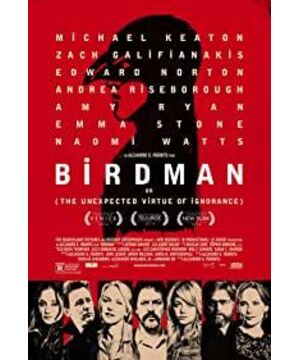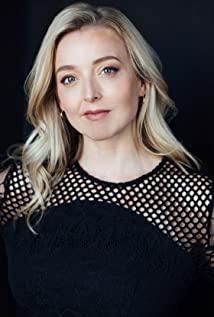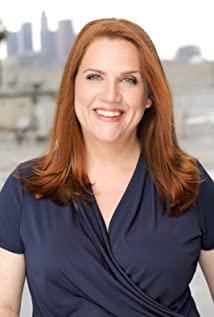, Russian-American writer Ayn Rand, in her novel "The Source", has this praise for New York known to the world: (rough translation) "I would rather give up the most beautiful sunset in the world, Just to see the New York skyline, especially when the details are lost. Just the shapes. The shapes and the idea of creating them. The sky of New York and the will of people to make it visible. Do we need any other beliefs? …let them come to New York and stand on the banks of the Hudson and open their eyes to watch and worship. When I see the city from my window—no, I don’t feel small—but I feel that if There is a war at this time, and I will throw myself over the city and protect these buildings with my body."
I am disturbed that there is a great man and countless ordinary people who have this hypocritical belief.
These people, like to create illusions for a time and space: Paris in the 1920s - Hemingway, Fitzgerald and Stein's Paris (Paris in the United States); Bohemia - the homeland of those wanderers, poets and songs Hands; or the Republic of China where great scholars are brimming with—the "age of innocence" for literary and artistic youth; for homosexuals, it was Berlin before the Nazis came to power in the 1930s, a period of unprecedented sexual openness in human history; a love of psychedelic drugs For example, during the Wei and Jin Dynasties of China (alchemy was simply drug addiction, also known as "Xing San") or California in the 1970s and 1980s; those who were addicted to sex but were afraid of getting sick had to sigh: I want to go back Until AIDS was discovered! Or those who keep chanting "New York is the center of the universe," and so on. These people, including Ayn Rand, are unfortunately living in a kind of morbid fantasy that they have weaved, and these diseases, whether it is "Paris disease", "New York disease" or "Republic of China disease", are in the final analysis. All the same, the source is a wretched "middle-class anxiety", a cheap "psychotic sleeping pill". And not only the middle class (petty bourgeoisie) that burst with the times, but also the workers who moved from small towns into big cities? They fantasize that their lives are much nobler than those of the old acquaintances who are still living in the old places, and they are living a life of gold and money; but the reality is that they may rent in a shantytown with five strangers and squeeze three hours on the subway. Commuting, 80 hours a week. But they have to tell themselves: Well, I still made the right choice. And numb yourself by constantly slandering the past. Over time, an illusion develops.
Actually, that's not what I want to talk about. What I'm talking about is a movie called "Birdman," or some of the movies, plays, and literature like it. The success of Birdman in the minds of audiences and practitioners fundamentally irritated me.
"Birdman" director and screenwriter Alessantoro Irina showed off his skills, recording Michael Keaton's middle-aged Hollywood star's vain attempt on Broadway in a long shot with multiple fakes Two days of ups and downs in the stage play. The first time I got a close-up of Emma Stone (who was an excellent actress) on camera, I was completely out of the scene. It was about the beginning of the film, Michael Keaton suspected that his daughter Emma Stone was smoking marijuana in the theater, and the daughter exploded with dissatisfaction with her father. She said something like this for about two or three minutes: Who do you think you are? I don't know who you are anymore? ! Who would do that? !
Thinking back, in our daily life, and in all the works of art we see, who would make such a sense of "self" and "identity"? Yes, it is the privileged few (The Privileged) who live in false fantasies. Most of them had no worries about food and clothing when they were young, at least at a certain stage of their lives experienced a relatively wealthy period, read some books (but never really understood them), and received some flashy higher education, so they delusionally thought about life and life. philosophical abilities. Each of their sentences has a capital "I" that is the subject and needs to be praised or paid attention to. How many creators of literature and film use their otherwise lackluster talents to satisfy their narrow sense of self? Those popular works and authors: Dead Poets Society glorifies the after-school activity group of a bunch of dudes into ideal defenders; Wong Kar-wai's blueberry pie and canned pineapple and all those vacuous little chores; Yates, or Updike, or Oster, or Maugham, or Evelyn Waugh, or Liang Shiqiu, Hu Lancheng, Yu Dafu, Zhu Tianwen, etc., infinitely magnify the family, life, marriage, and taste of a lowercase person into The whole world, these works of these people, in the normal value system, should always be just "small works" and "small homes". But in reality, these works by these people still occupy the so-called attention of the public and even those so-called professionals.
White middle-class Americans will love Birdman because they need to focus on the film about their emotional life and value orientation, they are hypocritical and hypocritical, they are going through or are going through a midlife crisis, they care about the world but only about the people who will connect with them A small part of the world. This is sick. But it's even more morbid that people who aren't part of the set of middle-class white Americans also like "Birdman." Such patients must have the following symptoms: have received the flashy higher education I mentioned earlier; do occasionally think about life and feel superior to others; have read more than one book in the past year, but this book is "New York" Times or other bestseller lists; love or claim to love one or more of photography, world travel, Japanese cuisine, golf, skiing, wine, cheese, and fine tea. At this point, I think you all know what I'm trying to attack, but let me go ahead and look at the income list of these people. Obviously not middle class! That's exactly what I'm saying, and more pathological than "middle-class anxiety" is "the illusion of middle-class anxiety." And the "fantasy of middle-class anxiety" is "New York disease."
Our happiness depends on the next door neighbor. This judgment is correct. Everyone is fighting so hard to live a "more decent life" that the obvious proletarians are scrambling to suffer from middle-class mental illness. Let's put it this way, if a character in a story behaves beyond his social attributes, and this behavior is obtained by the writer based on "psychological analysis", then the story and the character are hypocritical and worthless. Yes, I'm denying the "Happiness Line Behind the Dark Clouds", "Her", "Boyhood", "Birdman", "Wall Flower" in recent years... that kind of powdery air emanating from the pores. The "moe" of 's makes me feel deeply, deeply disgusted.
New York, a city of 8 million permanent residents, is not only home to those "artists" who have been mediocre, narcissistic and frivolous all their lives, but also the most ordinary workers. Like all other places in the world, It's also full of lies, violence, injustice and death that are far more powerful than middle-class sentimentality.
The author of this article is Zhao Binghao, a special writer for Jingmi
View more about Birdman or (The Unexpected Virtue of Ignorance) reviews











